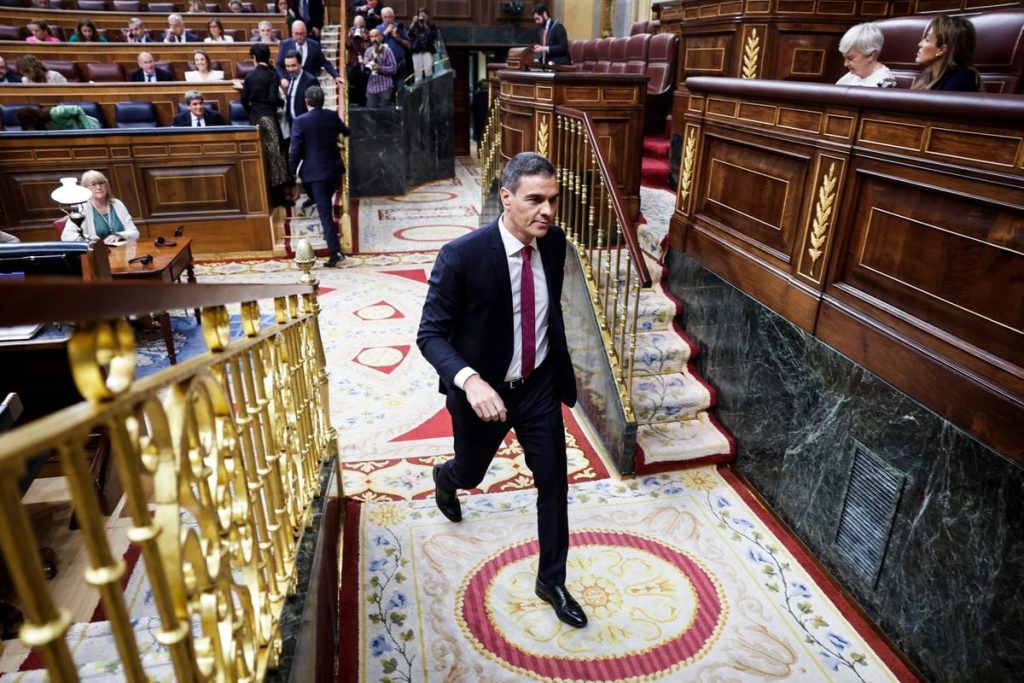When everything seemed to be on track with the amnesty law to finally start a legislature that was struggling to get going, the early Catalan elections arrived. The opposition, especially the PP, which leads in the polls, is convinced that they have found a weak point in Pedro Sánchez. Alberto Núñez Feijóo made it clear in his speech: “You have lost control and will not emerge victorious,” he told the president. Some PP leaders bluntly state in the corridors of Congress that “This is unstoppable, nothing that will happen in the coming months will stabilize the majority. The Basque elections due to the PNV-Bildu conflict, the Catalan elections due to the Junts-ERC battle, and the European elections, which will be a dogfight between Sumar and Podemos, and will be won comfortably by the PP,” they point out. The opposition has sensed weakness and believes that their takeover of power is just a matter of time.
In La Moncloa, they have a completely different view. This time, Sánchez is not just playing the resistance game, as seen in his speech in Congress, perhaps the one with the most content and substance he has given on the geostrategic issues he has been working on for years and the economic policy he defends. The president, according to sources in his inner circle, is confident that, despite the polls showing the PP rising and the PSOE falling, Feijóo has a huge project weakness and no position on almost any of the key issues dominating the international agenda, especially the wars in Ukraine and Gaza. And that, according to the president’s view in the debate, was made very clear on Wednesday when Sánchez tried several times to force Feijóo into a debate on international politics that the PP leader was trying to avoid. That is why La Moncloa has now coined the new slogan “between the mud and nothing” to try to engage Feijóo in a point that is a strength of Sánchez and a weakness of the PP leader: the international agenda.
Feijóo even claimed that the opposition never questions the Minister of Economy, Carlos Cuerpo, in control sessions, something unprecedented, arguing that nobody knows him, as if the issues he manages were not relevant. The PP leader reiterated several times that the opposition’s priority will not change: “amnesty and corruption, we are not going to ignore anything.” Even when talking about the victims of the war in Ukraine or Gaza, he immediately brought up the victims of ETA to talk about the agreements with Bildu. In La Moncloa, they believe that the PP may now be ecstatic about their constant improvement in the polls, but they are convinced that in the long run, the fact that they do not have a defined position on such decisive issues as Gaza, Ukraine, increased defense spending, or economic debates, will weigh them down.
Sánchez was very clear in his speech: he has a powerful international agenda, which this week he is finishing with a European tour, believes he has managed to position Spain with great international prominence by supporting the recognition of Palestine, which has a lot of social support, and has a vision of the issues dominating the agendas of foreign ministries, such as the increase in defense spending. The Government believes they left the debate with a moral boost and a clear strategy: trying to get Spanish politics out of the recent slump and talk again about economy, international politics, and important decisions. They are convinced that time will eventually play in their favor, but the same is thought in the PP. In the coming weeks, it will be seen who wins the game, whether Sánchez’s attempt to return to a more normalized political agenda and consolidate the legislature or the opposition’s desire to live in a perpetual feeling of exceptionality and a majority up in the air.


